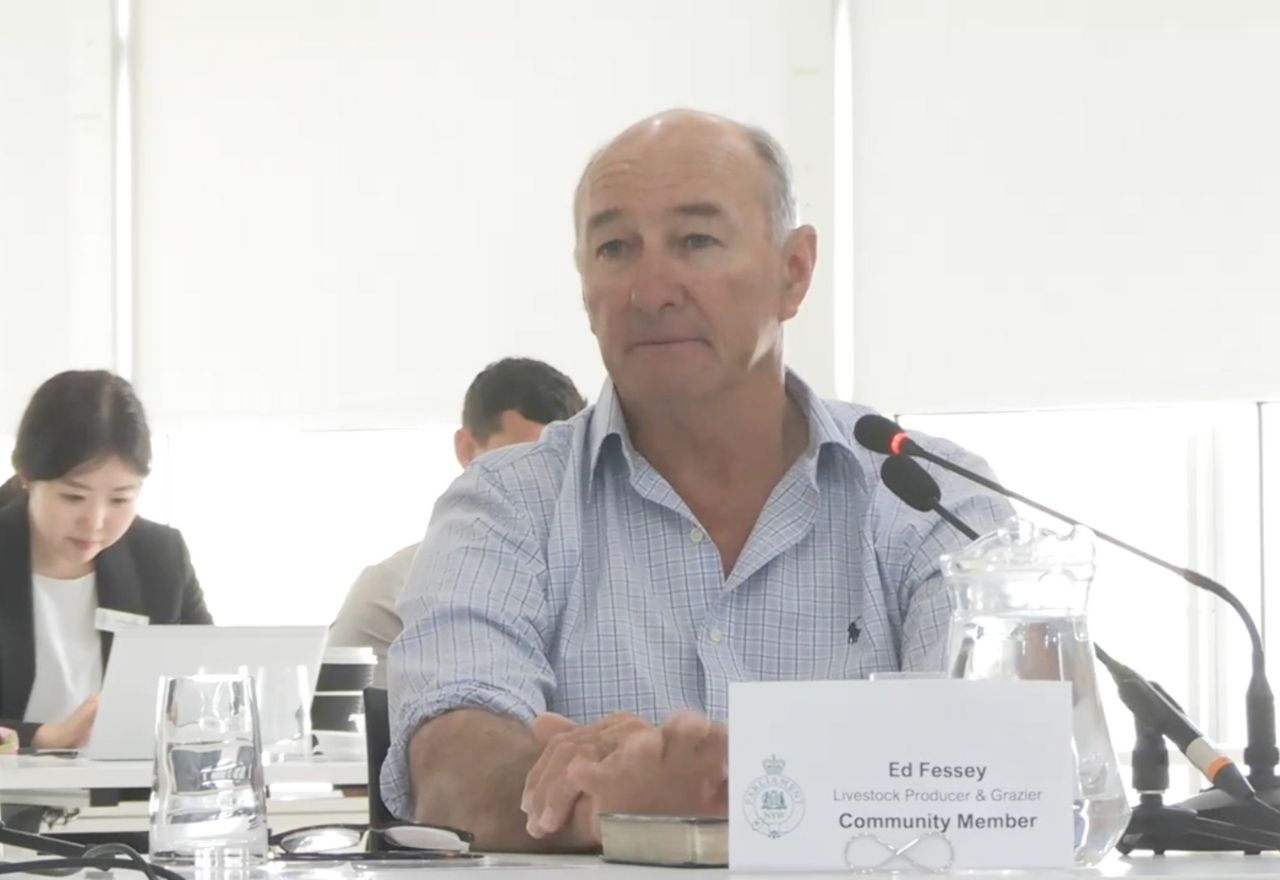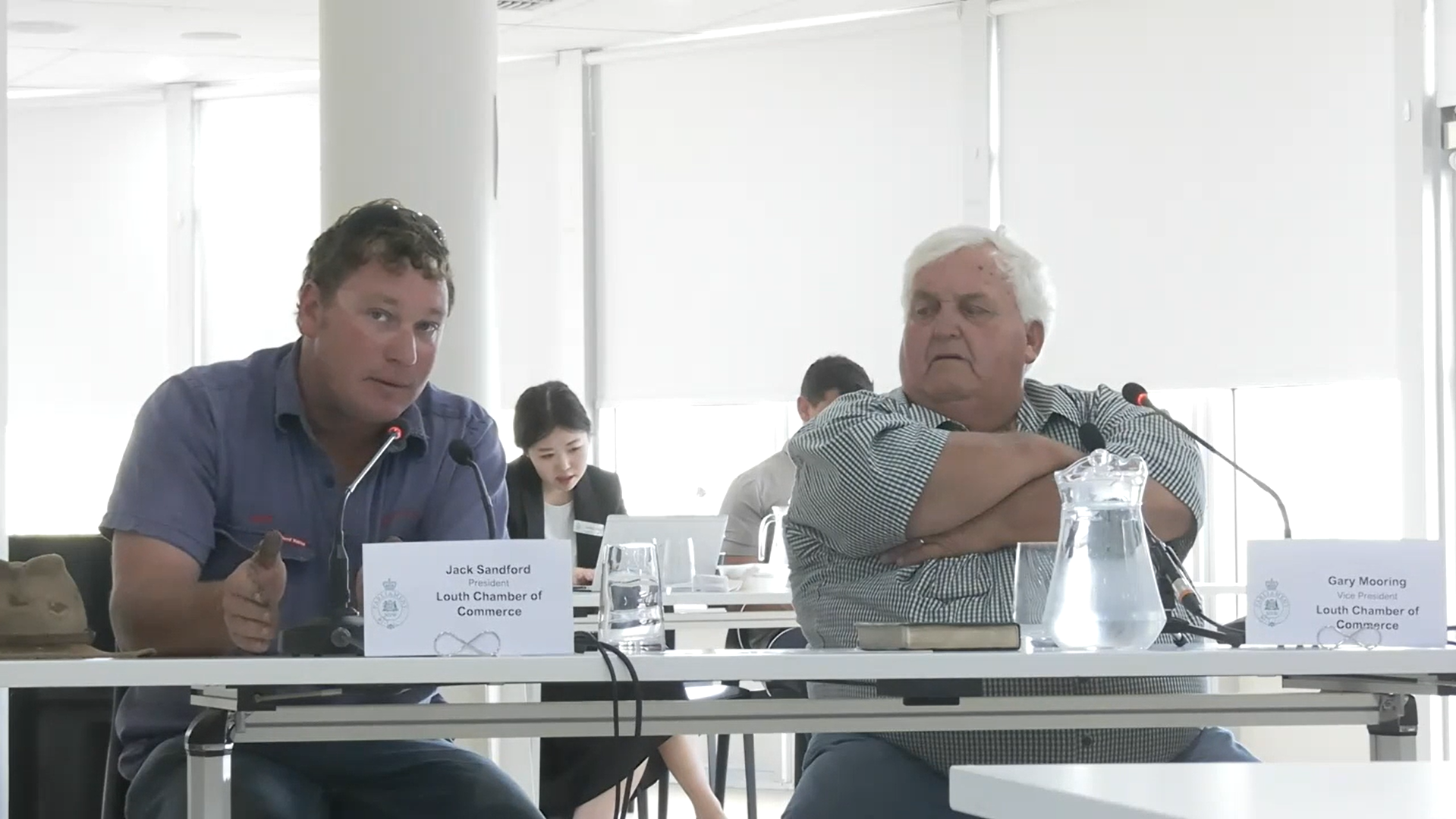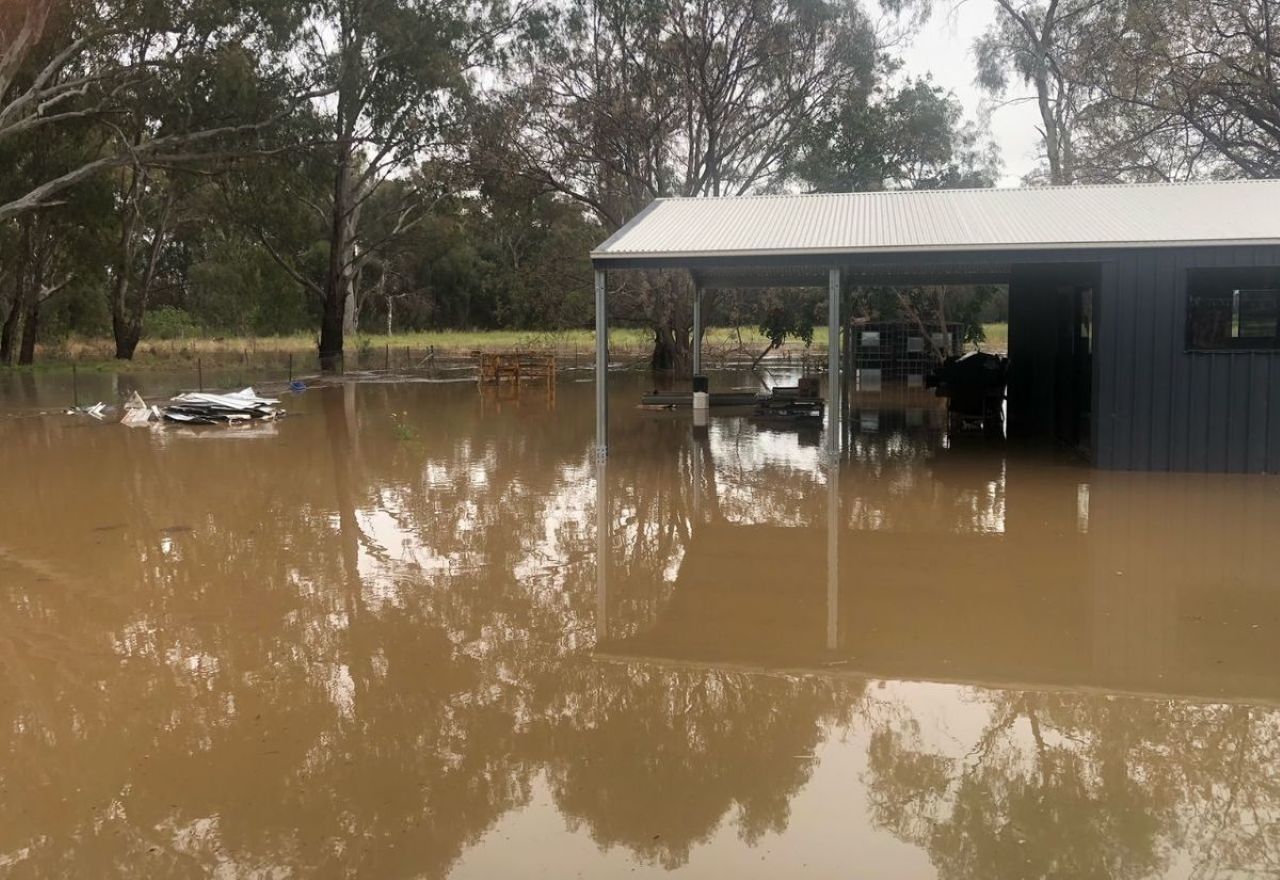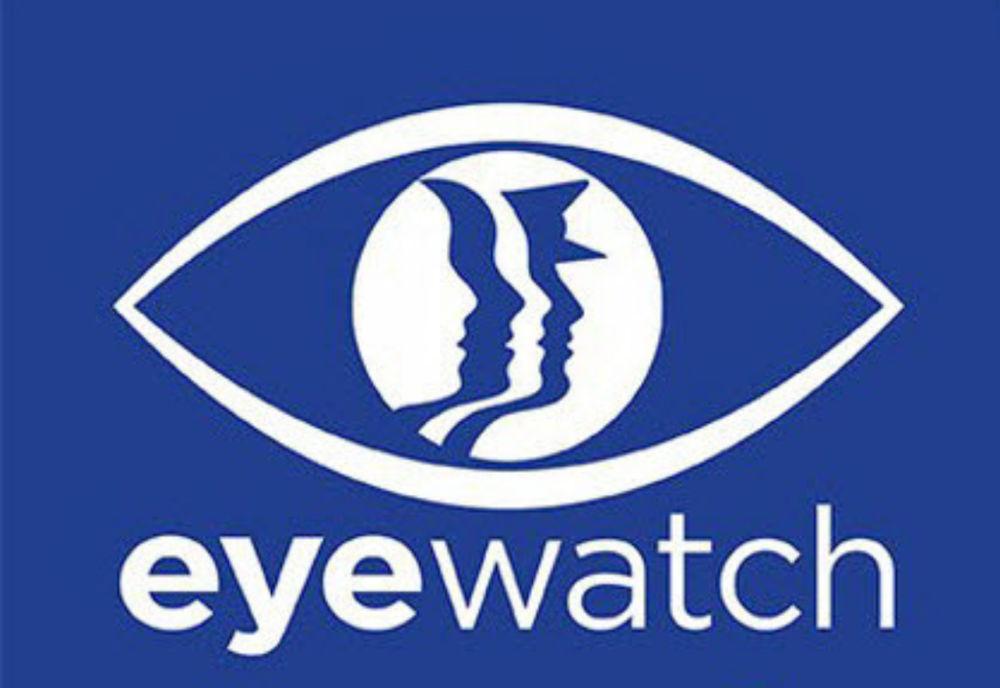Irrigation and buybacks in the spotlight at Bourke
River McCrossen
12 October 2025, 2:40 PM
 Grazier Ed Fessey speaks at an inquiry into water buybacks in Bourke on Friday 10 October.
Grazier Ed Fessey speaks at an inquiry into water buybacks in Bourke on Friday 10 October. Community and business leaders in Bourke Shire made their voices heard in a second day of hearings into water buybacks in the Murray Darling Basin on Friday 10 October.
Buybacks involve governments purchasing water entitlements from growers to keep it in the river.
The topic typically draws criticism from irrigators, who say the measure needlessly deprives them of water for agriculture, and support from graziers who say they help keep the rivers flowing.
At the Back O'Bourke Information and Tourism, Louth Chamber of Commerce vice president Gary Mooring said he doesn't believe the policy would place great pressure on his local economy.
"The irrigation industry has progressed to where they are not big employers," the grazier said.
"I'm not saying that the irrigation industry is not big to the people that have got it, but to the local economy it's not as powerful as what it is when you get up to your Morees, your Narrabris, your Wee Waas."
Mr Mooring said he supports any water recovery methods, including water buybacks.
He also said licences to extract water for irrigation upstream of Bourke put pressure on users downstream as the Barwon-Darling flows south west.
The hearing was part of the Inquiry on "Impacts of the Water Amendment (Restoring Our Rivers) Act 2023 on NSW regional communities."

Representatives with the Louth Chamber of Commerce told the inquiry that they are seeing less water flowing through local streams.
Barwon MP Roy Butler leads the inquiry committee, which was established in February 2025 to probe social, economic and environmental impacts of the current buyback scheme.
On Friday, they also heard from Bourke Shire mayor Lachlan Ford, irrigators Tony Thompson and Frank Old, and Brewarrina grazier Ed Fessey.
Cr Ford said buybacks have had a significant impact on the area's productivity and contributed to population decline.
"We still need to be able to produce things. Water is a key element to that," Cr Ford said.
"The loss of productive water for jobs has really hurt Bourke over the years.
"Your town has to maintain a critical mass of people to be able to have certain things. Every time we lose productive water, that chews into that critical mass around your education, your health, pretty much every part of what makes up the social fabric of the community."
He also spoke about controlling European Carp to improve river health.
Mr Fessey said increasing compliance with water rules has made as much difference to the environment as buybacks.
He also advocated for targeted water recovery depending on what different parts of the system needs.
"The bottom line is that old mother nature is highly variable," he said.
"You need 80,000 megalitres in the Barwon-Darling to make an end-of-system flow in half-reasonable antecedent conditions.
"If you had a really dry time, I think you'd probably need 100,000 or 120,000 depending on how hot it is.
"We've got to be smarter and, I think, be brave enough to say 'let's try some of these suggestions which are coming from the community.'"
Macquarie Marshes graziers Garry Hall and Dugald Bucknell also fronted the committee in Narrabri on Thursday 9 October.



